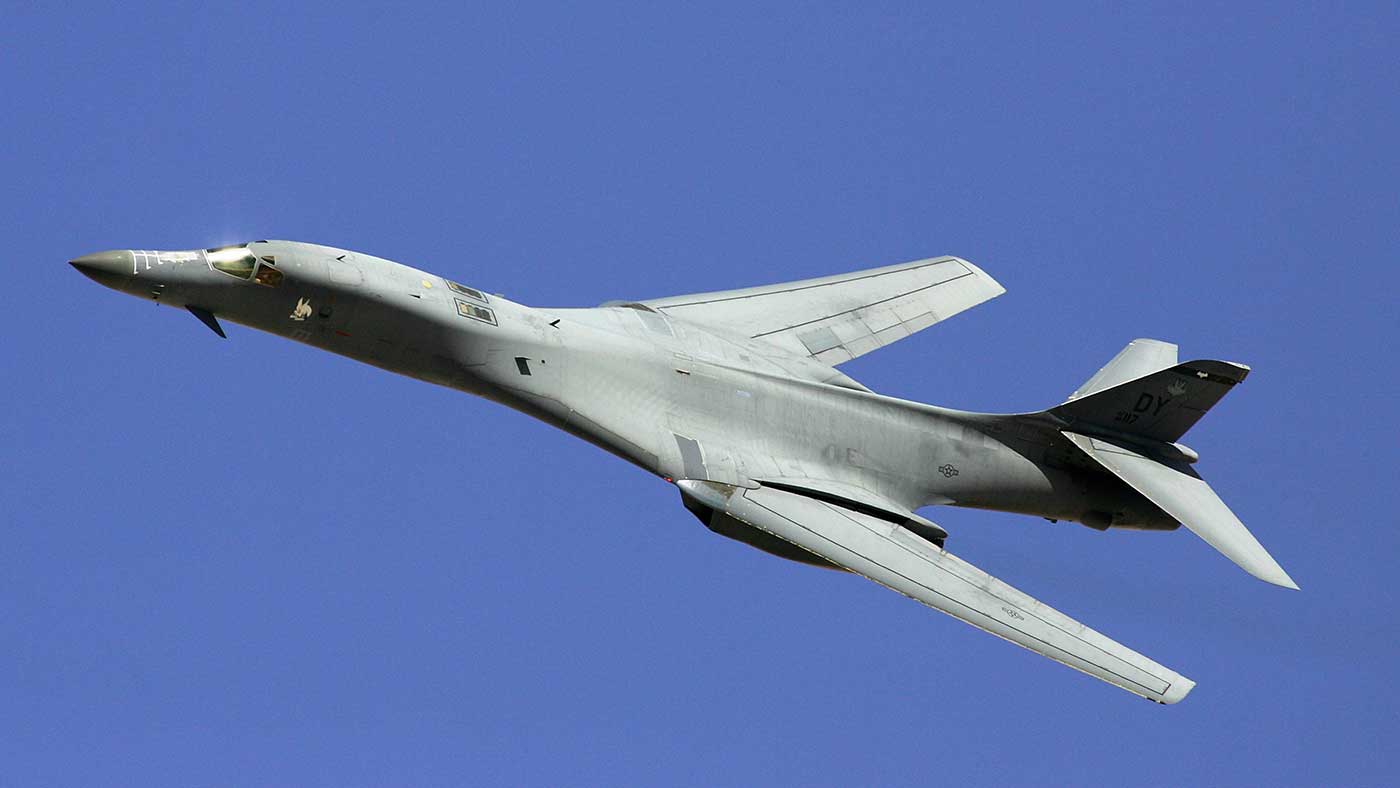US flies bombers over Korean Peninsula in show of force following North Korea military hack
Donald Trump discusses strategy with defence chiefs amid fears over stolen war plans

A free daily email with the biggest news stories of the day – and the best features from TheWeek.com
You are now subscribed
Your newsletter sign-up was successful
The US military flew two strategic bombers over the Korean Peninsula in a show of force yesterday as Donald Trump met defence chiefs to discuss how to respond to North Korea following the reported hacking of wartime operational plans.
The bombers took off from the US Pacific territory of Guam, before entering South Korean airspace and conducting firing exercises over the East Sea and Yellow Sea, South Korea’s military said.
The training was part of a programme of “extended deterrence” against North Korea, it added.
The Week
Escape your echo chamber. Get the facts behind the news, plus analysis from multiple perspectives.

Sign up for The Week's Free Newsletters
From our morning news briefing to a weekly Good News Newsletter, get the best of The Week delivered directly to your inbox.
From our morning news briefing to a weekly Good News Newsletter, get the best of The Week delivered directly to your inbox.
The exercises came hours after a South Korean lawmaker claimed North Korean hackers had stolen a large cache of military documents from his country, “including a plan to assassinate North Korea’s leader Kim Jong Un, and wartime contingency plans drawn up by the US and South Korea”, reports the BBC.
“The plan is fundamental to conducting a war operation, and leakage of even a small part of it is very critical,” Rhee Cheol-hee, of the ruling Democratic Party, told Bloomberg. “How could we fight against an enemy and win a war if it’s already aware of our strategy?”
A Pentagon spokesman, Colonel Robert Manning, said he was aware of the report, but declined to confirm or deny any aspect of it.
“I can assure you that we are confident in the security of our operations plans and our ability to deal with any threat from North Korea,” Manning said.
A free daily email with the biggest news stories of the day – and the best features from TheWeek.com
“I am not going to address whether or not that [hack] has occurred. What I am going to tell you is that the [South Korea]-US alliance, that bilateral entity, is there to deal with those types of situation and safeguard against them.”
South Korean and US government officials “have been raising their guard against more North Korean provocations with the approach of the 72nd anniversary of the founding of North Korea’s ruling party”, says Reuters.
President Trump hosted a discussion on options to respond to any North Korean aggression, or, if necessary, to prevent Pyongyang from threatening the US and its allies with nuclear weapons, the White House said in a statement.
Meanwhile, China - North Korea’s closest ally and trading partner - expressed alarm at how far the rhetoric on both sides had gone, warning of the increased risk of a “fatal misjudgement”.
“The international community won’t accept North Korea as a nuclear power. North Korea needs time and proof to believe that abandoning its nuclear programme will contribute to its own political and economic advantage. This positive process is worth a try,” said an editorial in the state mouthpiece Global Times, following yesterday’s military exercises.
“War would be a nightmare for the Korean Peninsula and surrounding regions. We strongly urge North Korea and the US to stop their bellicose posturing and seriously think about a peaceful solution,” it said.
-
 Political cartoons for February 19
Political cartoons for February 19Cartoons Thursday’s political cartoons include a suspicious package, a piece of the cake, and more
-
 The Gallivant: style and charm steps from Camber Sands
The Gallivant: style and charm steps from Camber SandsThe Week Recommends Nestled behind the dunes, this luxury hotel is a great place to hunker down and get cosy
-
 The President’s Cake: ‘sweet tragedy’ about a little girl on a baking mission in Iraq
The President’s Cake: ‘sweet tragedy’ about a little girl on a baking mission in IraqThe Week Recommends Charming debut from Hasan Hadi is filled with ‘vivid characters’
-
 Will increasing tensions with Iran boil over into war?
Will increasing tensions with Iran boil over into war?Today’s Big Question President Donald Trump has recently been threatening the country
-
 Corruption: The spy sheikh and the president
Corruption: The spy sheikh and the presidentFeature Trump is at the center of another scandal
-
 Rubio boosts Orbán ahead of Hungary election
Rubio boosts Orbán ahead of Hungary electionSpeed Read Far-right nationalist Prime Minister Viktor Orbán is facing a tough re-election fight after many years in power
-
 Greenland’s capital becomes ground zero for the country’s diplomatic straits
Greenland’s capital becomes ground zero for the country’s diplomatic straitsIN THE SPOTLIGHT A flurry of new consular activity in Nuuk shows how important Greenland has become to Europeans’ anxiety about American imperialism
-
 Epstein files topple law CEO, roil UK government
Epstein files topple law CEO, roil UK governmentSpeed Read Peter Mandelson, Britain’s former ambassador to the US, is caught up in the scandal
-
 Iran and US prepare to meet after skirmishes
Iran and US prepare to meet after skirmishesSpeed Read The incident comes amid heightened tensions in the Middle East
-
 Which way will Trump go on Iran?
Which way will Trump go on Iran?Today’s Big Question Diplomatic talks set to be held in Turkey on Friday, but failure to reach an agreement could have ‘terrible’ global ramifications
-
 Israel retrieves final hostage’s body from Gaza
Israel retrieves final hostage’s body from GazaSpeed Read The 24-year-old police officer was killed during the initial Hamas attack